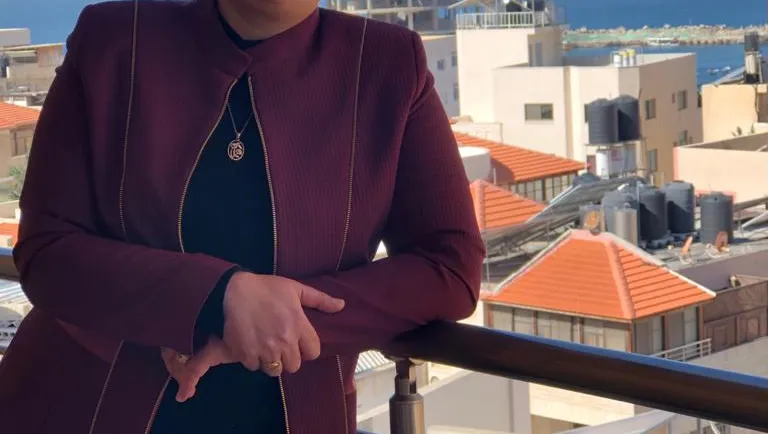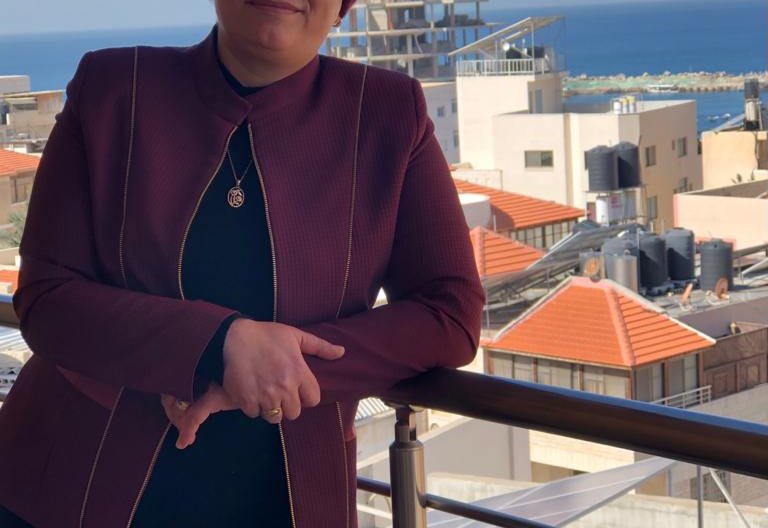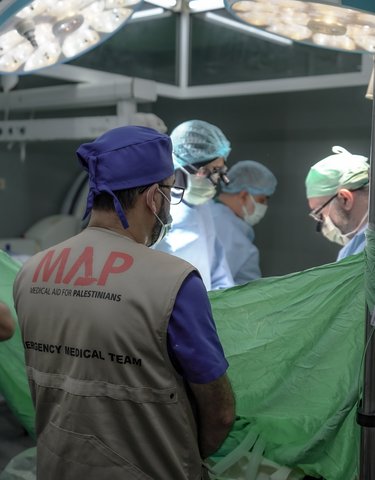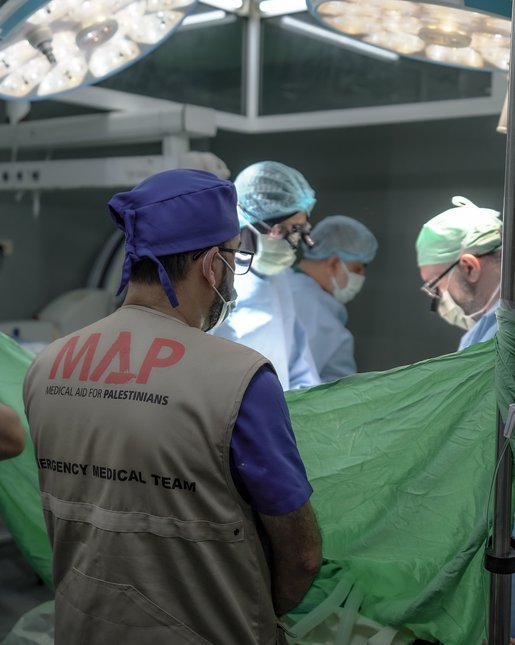“I didn’t have a fancy life, but I had a good life. Now there is no life”
30 April 2024


I was sleeping when everything started. My friend and I had plans to go to the beach that day, we were going to go for a walk, sit in a café and have a coffee – just a day for ourselves, to rest and do things we enjoy. But in the end, we didn’t go. We knew that a war was imminent, and the whole situation will turn out to be terrifying.
We were living under Israel’s blockade, with severe movement restrictions, and the Israeli army bombarded Gaza almost every year or so – but this was nothing compared to what we are living now. I had friends, family, I would go out and do things. I was studying for my master's degree and working in a job that I loved. Life was good, even though it was difficult in Gaza, but I made a life for myself. I didn’t have a fancy life, but I had a good life. Now there is no life.
Before October, the blockade meant I always had an issue with electricity shortages at home. But I installed a solar panel, and invested all I had in this house, to live with my two boys as comfortable as possible given the circumstances. It didn’t even cross my mind that we would have to leave our home. Why would we?
Then, one night, my nephew called me – it was 3am – and he asked me if I was awake. One of his neighbours had told them that Israeli forces had called and said that they were going to bomb his home, and that they should leave immediately. My brother and his family ran to our home, you can’t imagine the state they were in. They didn’t have anything with them, just the clothes they were wearing. When they tell you they’re going to hit your home, you imagine that it will happen right then and there, so they left with nothing.
We didn’t sleep that night. The next morning, we got a text message from the Israeli military that they were opening a road for people to leave their houses in the north and go to the south of Gaza. There was a big argument within my family, I did not want to leave my home, my sons didn’t want to leave either. But I also felt scared and responsible to keep my two young boys alive and safe. They’re young men, 22 and 24, but I still felt responsible for their lives.
My brother said something to me which really changed everything for me: “Leave while you still are able to leave.” Those words scared me. I began to imagine, what if Israeli forces come and what if they hurt my sons or take my sons. So, we left and went to Rafah – we have relatives there, so we went to stay with them. That was the first move. We moved between two houses in Rafah.
Then we moved again to Az-Zawayda, in Deir Al Balah. It was hard to stay with people, we didn’t want to burden them and it’s not easy to stay in someone else’s home. I desperately want to go back to my home. It is the strongest wish I have, to be there, with my sons.
I don’t care about the wall that gathers humidity, or the frame that constantly shakes and needs to be nailed to the floor, or any other problems it had. I just want to go home; I miss it so much. You cannot imagine how hard it is to live with tens of people inside a small apartment, being so scared, hungry, and having no idea who will be killed next.
We have our two cats; they have been part of the family ever since they were babies. We took them with us from place to place, it was difficult, and it feels crazy to take them to other people’s homes, but they are like my sons, and I couldn’t leave them on the street.
We were living under Israel’s blockade and the Israeli army bombarded Gaza almost every year or so – but this was nothing compared to what we are living now.
Many days I wish I will go to sleep and not wake up the next morning. Staying alive has become so difficult. I can no longer feel lucky that we have survived. My house was destroyed, I lost so many loved ones, and surviving has become an endless struggle for scarce food, water and safety.
Where we are staying now, we have a major issue accessing water. We have to buy water and fill the water tank, or call someone to come and fill it for us, if they can even come. The home I am staying in has 30 people, there are many children. It’s crowded, every place you go it’s like this, there are at least 20 to 30 people in every home. Everything is expensive, it’s outrageous.
We have no fruit in the markets, it’s a dream to even think about seeing fruit – there is nothing healthy. All our food is in cans, it’s barely edible human food. But there is no choice – we need to take in as many calories as we can to survive.
There are no markets to go and search for something to buy, even if you can afford it, there are just people on the sides of the road selling things. Even the canned food, or the oil we buy are from these sellers on the streets. It’s not food for people – I buy the tinned meat for my cats, Fluffy and Loulou, and even they won’t eat it!
We don’t have access to the internet. The one good thing about the place I am staying in is that it has a solar panel, so we have electricity. For four months we were washing our clothes by hand, we didn’t have gas to cook. We would light a fire, buy wood, and boil our water on this fire to bathe. This was our life. It was as if we were living in the past, with only the most basics, no electricity, no gas, just a fire.
It’s almost impossible for me to communicate with other people now, including my colleagues at MAP. Reaching my family has become very difficult. I speak to the MAP team when I can, asking if there is something I can help with. I have helped to procure mattresses and other supplies for internally displaced families, and now I’m helping to establish medical points in different parts of the south.
I miss so many things. I miss waking up in the morning and taking a shower in my own home, drinking my coffee, going to work and seeing my colleagues at the office and then going home and living a normal life with my sons. I want to see my brothers and sisters on the weekends, and in the mornings go walking with my friend on the beach. I wish with all my heart that I can see Gaza as it was. I want to stand right next to the sea, not see it from afar.
I wish that the war will end. Enough of the killing, of the death, of the loss. I don’t want to hear the sounds of bombs anymore, every day that’s all I hear: explosion after explosion, you can’t even sleep. Everywhere you go at every time of the day you hear bombs. I wish for the war to end.
MAP’s team in Gaza were among the first to respond to the current emergency and remain one of the only international organisations working to provide humanitarian and medical services, including in the north. Please support our emergency response today.
This is the second of our ’Voices from Gaza’ blog series where we hear from members of MAP’s team in Gaza. Stay tuned for next week’s blog.
Photo: Amal Zaqout, MAP’s Community Programme Officer in Gaza.

